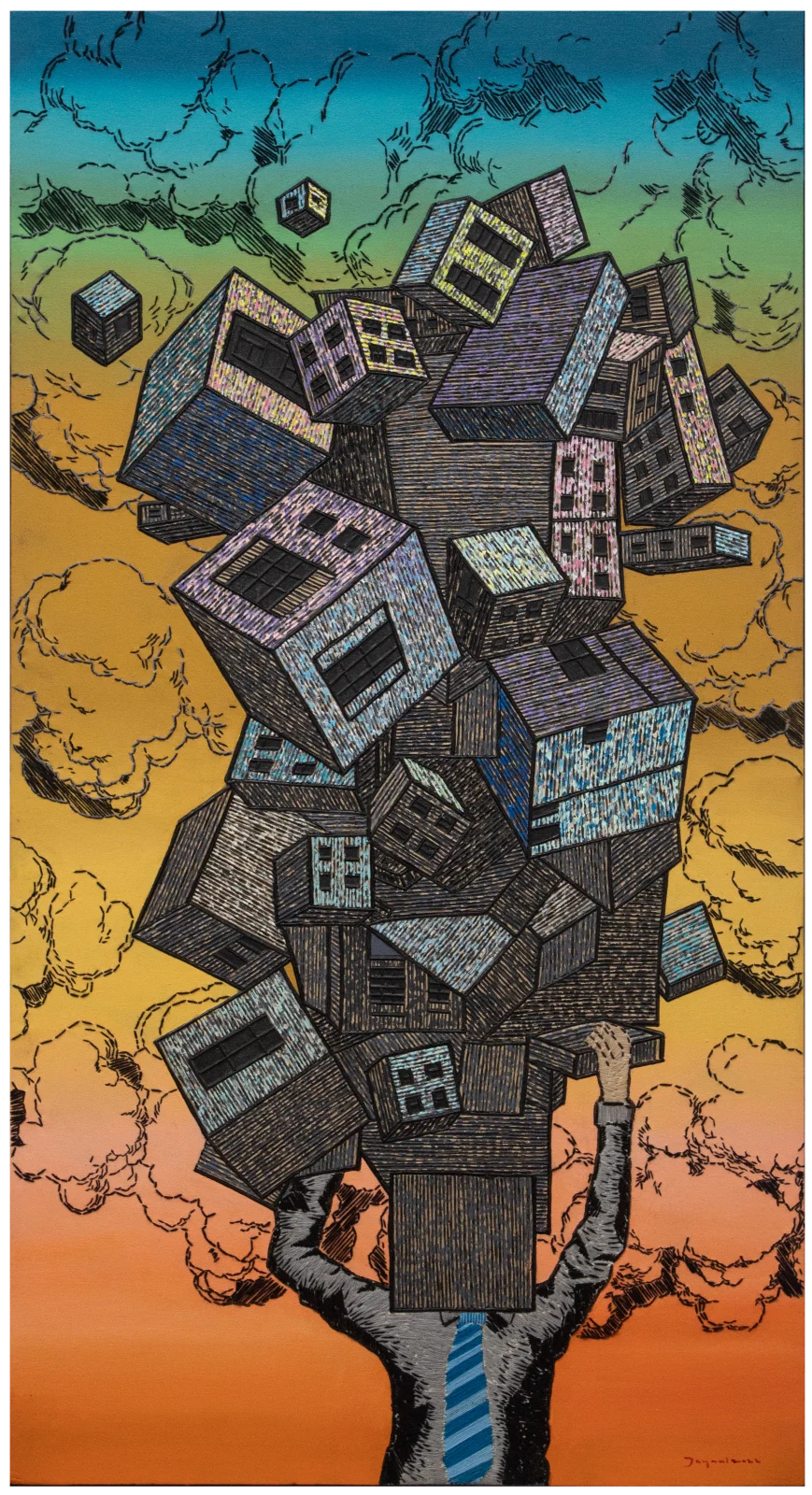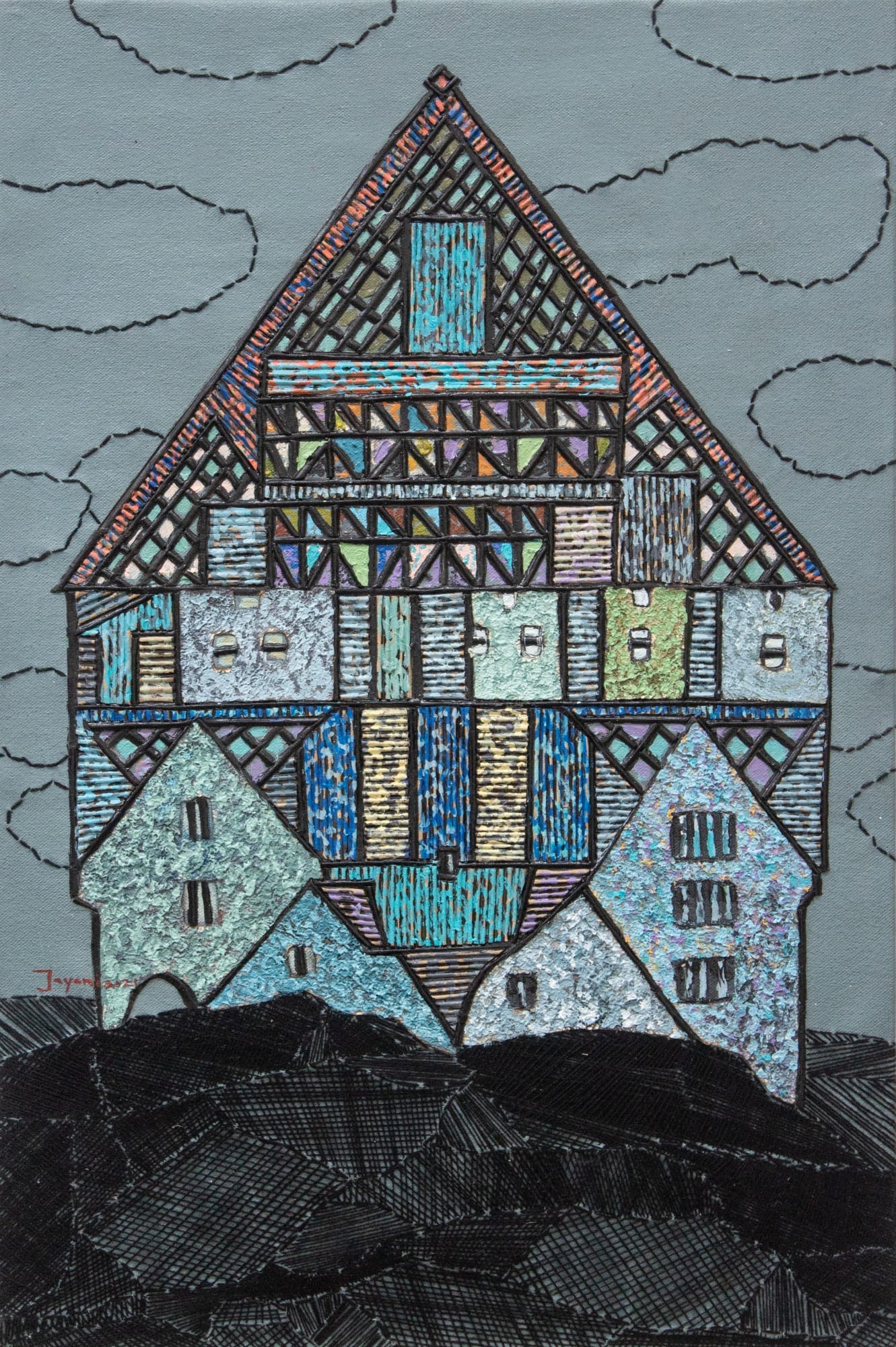How Media Is Like A Dream

Media is not a window onto the world. It’s a window into the machine dream world, a system of material production pumping out industrialized information into every sensory organ. All of our media—including news—are just carefully engineered dreams. They’re either completely manufactured hallucinations (like dramas) or selectively edited perceptions (like news). We get confused because they look so real, but we also get confused by dreams every night. Waking or sleeping, in truth, we are always dreaming.
In both cases, the evidence is right in front of your eyes or, more specifically, it isn’t. When we’re dreaming, our eyes are closed but it still feels like we’re seeing. The brain manufactures an entirely believable experience from whole cloth, complete with sights, sounds, orgasms, and even wetting yourself. When we’re awake, our eyes are open, but we’re really just dreaming. Images on our retina while speakers play our eardrums. Instead of your brain running the simulation, some electronics and distant servers do, and a few perceptual tricks fill in the rest. It’s dreaming at a distance.
It’s all the same phenomenon really, dreaming between your skull alone or pulling out your phone to dream together. Indeed, the experience is much the same. Just think about the edits on any TV program and random movements you get within a dream. We think that media simulates the real world, but in its frenetic movements and instant scene changes, it really simulates a dream.
In the dream world, I never know how I got anywhere, I’m just there. I flit from scene to scene, limited only by my subconscious attention span. There’s no waiting for trains or long introductions or boredom. So it is with manufactured media. The camera just flits from person to person, shot to shot. The camera moves like our restless subconscious, in an inherently dreamlike hurry and forgetfulness. That’s why TV is so captivating. It’s a waking dream.
The great wonder of our perceptual system is that it can be so easily tricked.We think that we’re just perceiving the world with our eyes and ears, but we’re not, we’re constantly creating it. We take a bunch of paint and lights and make it into a traffic system that enables us to drive past each other at 100km an hour. We take a bunch of sounds and make them into a language. We take a bunch of pictures and move them quickly enough that it looks real.
Our brain is designed to completely hallucinate reality at least two hours a night and with our throats and thumbs we have figured out how to extend that hallucination into times when we are nominally waking. You can see this most obviously in children, for whom the line between imagining and perceiving doesn’t exist. When you play peek-a-boo, you really are gone. And when you say boo, you magically reappear.
Children love and demand stories before bed, that liminal space between waking and dreaming. My children go to this in-between place every night. It’s very real to them. They believe in the tooth fairy, they believe in their stuffed animals, in the souls of animals, in the stories they hear at night. We stop believing in our imaginations as adults, but the children are right.
The biggest part of growing up is not discovering reality but discovering which delusions are shared. The painted lines on a highway, the grunts that have meaning, the lines on a map, the numbers on a chart. Children go from living in their own dream world, to a shared one of play, to a distributed imagination of Disney, to the dreary adult play of talking about the news and weather.
The truth is that adults also demand stories before bed and indeed all day. Look at us before bed, doom-scrolling into the night. We have outsourced our imagination to the machine world, and think that we’re so real and serious. We’re fools. We live in an imaginary world as much as children, only our imagination is constrained by corporations.

The dream world we live in and call reality is in fact a massive, highly processed hallucination. Artificial beings (re: corporations) own massive dream machines consisting of studios, satellites, printing presses, servers, and ‘human resources’ too. Other corporations fund them through advertising and governing institutions corrupt them through access. Hence we dream of nations, we dream of races, we dream of borders, money, and any number of imaginary things. And we think it real. In truth, we’re just doing lines off black mirrors and tripping balls.
The historical truth, of course, is that we’ve always been tripping. The (largely oral) mass media of the past we call mythology and look down on, but we’re no different. Modern mass media merely manufactures mythology on an industrial scale. The ethos of mythos is collective dreaming, the collective unconscious, albeit capitalized and hooked up to the fever dreams of other lifeforms, ie corporations.
As Plato’s Republic says “You are aware, I suppose, that all mythology and poetry is a narration of events, either past, present, or to come?” This of course describes the media of our day as well. It’s just arrogance that makes us think the ancients were superstitious and we’re super-serious. When we watch the Marvel Cinematic Universe it’s quite obviously mythology, and when we watch CNN it’s not much different.
CNN’s coverage of the Iraq invasions was not so different than Homer’s coverage of the sack of Troy. The blind bard told stories that made people imagine that they were there with Achilles, watching Horace’s dead body being dragged around the city by his ankles, while Americans watched the charred bodies of their mercenaries in Fallujah (and not the bodies of all the dead Iraqis that piled up all around). While The Iliad sold the whole invasion based on some invisible apple, the invasion of Iraq was predicated on invisible WMDs. As my book of history will someday be called, Same Shit, Different Day. The news is just newer than mythology, it’s not qualitatively different. It’s all myth-making in the end.
The only real difference between dreams and reality is that we dream alone and reality is shared, often violently. You can’t die in your dreams, but you can die over dreams. A dream of nation. A dream of race. A dream of self. Row, row, row your boat. Life is but a dream. When we talk about media and mythology and drama vs. documentary we’re really just talking about gradients of illusion, not hard divisions between reality and non-reality.
The fact is that nothing is real except death. It’s all a representation, a re-presentation, whether it’s re-presenting a sunset as a pointillist painting on your retinas, re-presenting a bombing in pixels on a screen, or re-presenting flying elephants in a dream. In this way, media is like a dream in the way that everything is like a dream. The only waking in this life is dying, and don’t nobody want that. The best we can hope for is for dreaming better. For lucid dreams.